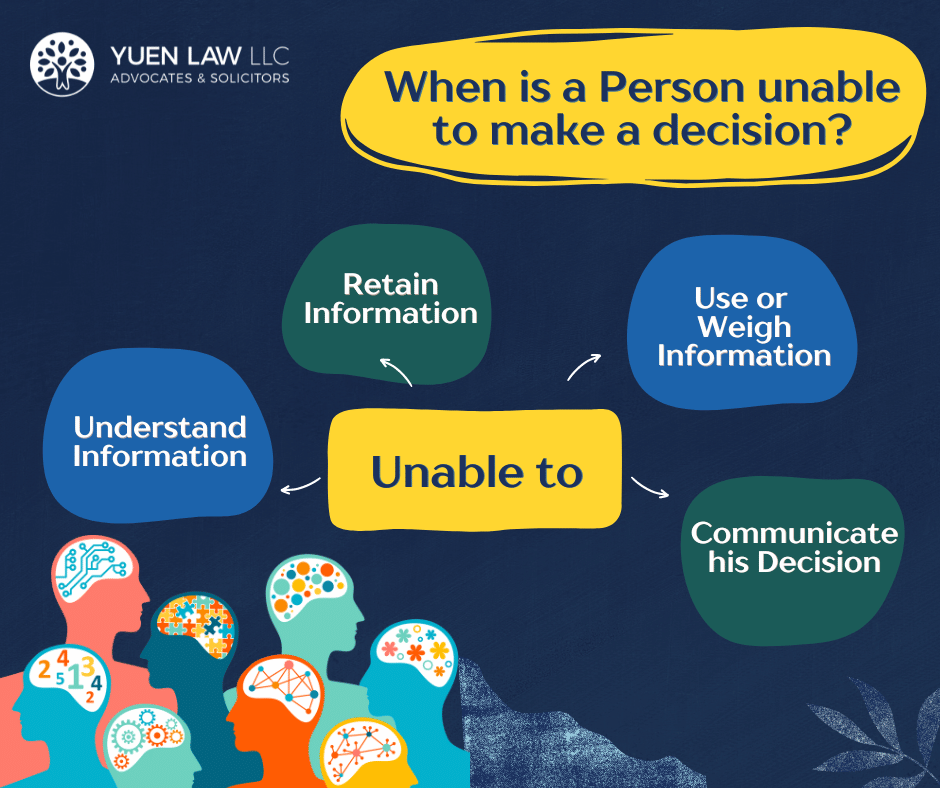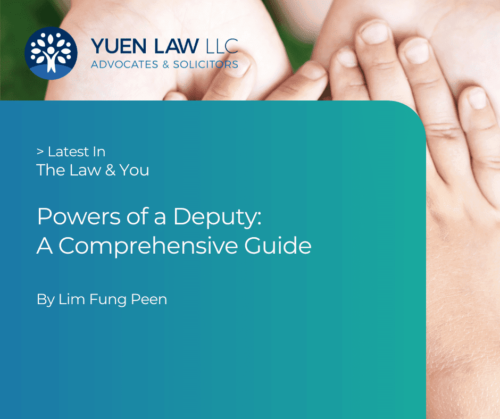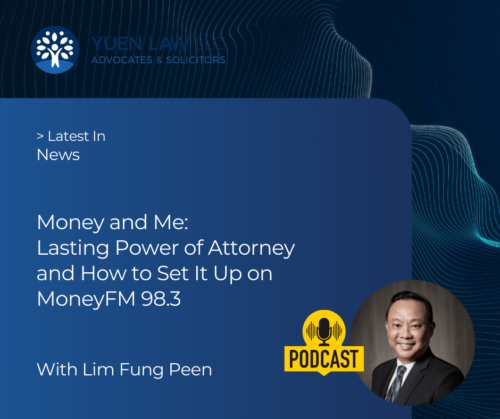
Dementia in Singapore
Loss of mental capacity may be caused by dementia, stroke or mental health problems and is not necessarily associated with old age. According to the Ministry of Health, 1 in 10 seniors above the age of 60 years old in Singapore suffer from dementia. By 2030, the number of dementia patients is expected to increase to 152,000.
Individuals experiencing dementia may face challenges such as:
- Cognitive decline, affecting their ability to think and reason.
- Memory impairment, hindering the retention of new information and recollection of past events.
- Difficulty in self-care tasks.
- Struggles in learning new information and acquiring skills.
- Impaired problem-solving capabilities and judgment skills.
While the risk of dementia increases with age and is more common in those aged 65 years old and above, a young person may also experience loss of mental capacity where they suffer a stroke, brain injury, or intellectual disabilities. As such, it is becoming more and more important to make a Lasting Power of Attorney (LPA) so that you can be prepared for the unexpected.
What is the Mental Capacity Act
The Mental Capacity Act was introduced by the Singapore Government in 2008 to address the rising prevalence of mental illnesses with the aging population. It became effective in 2010, serving as a legal framework to protect individuals who may lack decision-making capacity and facilitates the appointment of individuals to make decisions on behalf of those who lack the capacity to do so due to impairment or disturbance in the functioning of the mind and/or brain.
Now, any Singaporean aged 21 and above can plan for potential mental incapacity by appointing a trusted individual to make decisions on their behalf if they become unable to do so in the future. Moreover, parents of children with intellectual disabilities have the option to seek court appointment of a deputy to plan for the future.
Professional Deputies and Donees Scheme
In 2016, amendments to the Mental Capacity Act introduced provisions for professional donees and deputies unrelated to the patient. This enhancement allows individuals without close family or friends to appoint professionals to act on their behalf in critical matters related to health, welfare, and finances, ensuring comprehensive protection under the Act. Visit the Ministry of Social and Family Development website for a list of Professional Deputies and Donees.
How does the Mental Capacity Act protect a person who lacks capacity?
This legislation outlines the conditions and procedures for creating a lasting power of attorney (referred to as the “LPA”). An LPA is a legal document empowering an individual to voluntarily appoint another person to make decisions regarding personal welfare, property, and financial affairs.
Should a person lose his mental capacity before he has a chance to make a Lasting Power of Attorney, the Act requires that a Deputyship Court Order be granted before anyone else may act on that person’s behalf.
Defining Loss of Mental Capacity
If at a particular point in time, you are unable to make a specific decision for yourself due to an impairment of the brain, you are considered to have a loss of mental capacity.
According to Section 4 of the Mental Capacity Act, an individual is deemed to lack capacity concerning a matter if, at the relevant time, they are incapable of making decisions due to an impairment or disturbance in the functioning of the mind or brain. This determination is irrespective of whether the impairment or disturbance is permanent or temporary.
When is a Person unable to make a decision?
According to Section 5 of the Mental Capacity Act, a person if unable to make a decision for himself if he is unable to:
- Understand the information relevant to the decision;
- Retain that information;
- Use or weigh that information as part of the process of making the decision; or
- Communicate his decision (whether by talking, using sign language or any other means).

Loss of mental capacity can be permanent or temporary. It is possible for you to have capacity to make some decisions at a particular time, but not others. For instance, you may be able to decide what to buy at a department store, but when it comes to financial decisions, you may not be able to handle large sums of money.
Protected Decisions and Safeguards Under Mental Capacity Act
Certain decisions cannot be made on behalf of a person lacking mental capacity, as outlined in section 26. These include:
- Giving consent to marriage
- Providing consent to sexual activities
- Agreeing to divorce based on three years of separation
- Approving an adoption order
- Renouncing or adopting a religion
- Receiving treatment for a gender change
- Granting consent to sexual sterilization
- Approving termination of a pregnancy
- Consenting to organ donation
- Making an Advanced Medical Directive
The Mental Capacity Act ensures protection for those who lack the capacity to manage their affairs, shielding them from potential abuse or exploitation. If you wish to safeguard yourself in case of future mental incapacity or if you’re concerned about a loved one, seeking advice from a lawyer can help you understand the best legal options available for your situation.
For assistance regarding Lasting Power of Attorney matter, please contact us to make an appointment.






